 W
WAnne Barbara Michie Anderson was a Scottish reproductive physiologist, researcher, lecturer, and author. Her major contributions were for her research in reproductive physiology. In the last decade of her life, she broadened this to encompass more about women's health generally, including doing clinical trials and working with people focusing in on what would become evidence-based medicine.
 W
WClementina "Kit" Caroline Anstruther-Thomson (1857–1921) was a Scottish author and art theorist. She was known for writing and lecturing on experimental aesthetics during the Victorian era. Her collaboration with Vernon Lee in the 1890s inspired Lee's growing interests in the psychological aspect of aesthetics later in her career.
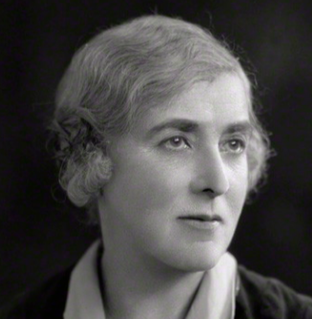 W
WHelen Alexander Archdale was a Scottish feminist, suffragette and journalist. Archdale was the Sheffield branch organiser for the Women's Social and Political Union and later its prisoners' secretary in London.
 W
WLady Grizel Baillie, née Hume, was a Scottish gentlewoman and songwriter. Her accounting ledgers, in which she kept details about her household for more than 50 years, provide information about social life in Scotland in the eighteenth century.
 W
WAnne Bannerman was a Scottish poet. She was part of the Edinburgh literary circle which included John Leyden, Jessie Stewart, and Thomas Campbell, and Dr Robert Anderson. Her work "remains significant for her Gothic ballads, as well as for her innovative sonnet series and her bold original odes."
 W
WLady Anne Barnard was a Scottish travel writer, artist and socialite, and the author of the ballad Auld Robin Gray. Her five-year residence in Cape Town, South Africa, although brief, had a significant impact on the cultural and social life of the time.
 W
WVivienne Margaret 'Meg' Bateman is a Scottish academic, poet and short story writer. She is best known for her works written in Scottish Gaelic; however, she has also published work in the English language.
Sheena Blackhall is a Scottish poet, novelist, short story writer, illustrator, traditional story teller and singer. Author of over 150 poetry pamphlets, 15 short story collections, 4 novels and 2 televised plays for children, The Nicht Bus and The Broken Hert. Along with Les Wheeler, she co-edits the Doric resource Elphinstone Kist, and has worked on the Aberdeen Reading Bus, as a storyteller and writer, also sitting on the editorial board for their children's publications in Doric, promoting Scots culture and language in the North East. In 2018 Aberdeen University awarded her the degree of Bachelor of the University.
 W
WEliza Brightwen was a Scottish naturalist and author. She was self-taught, and many of her observations were made in the grounds of The Grove in Stanmore, the estate outside London which she shared with her husband during his lifetime and where she lived as a widow. She was described in 1912, as "one of the most popular naturalists of her day".
Lady Elizabeth Campbell, known as Liza Campbell, is an artist, calligrapher, columnist, and writer, born in the north of Scotland and currently living in London, England. She is the second daughter of Hugh Campbell, 6th Earl Cawdor (1932–1993), by his first wife, the former Cathryn Hinde. She is the last child of an Earl Cawdor to have been born at Cawdor Castle, which has previously been erroneously associated with Shakespeare's Macbeth.
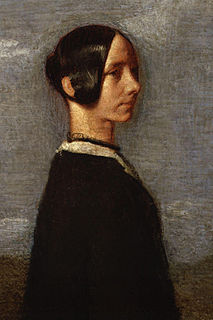 W
WJane Welsh Carlyle was a Scottish writer. She did not publish any work in her lifetime, but she was widely seen as an extraordinary letter writer. Virginia Woolf called her one of the "great letter writers," and Elizabeth Hardwick described her work as a "private writing career."
 W
WFrances Mary Colquhoun was a Scottish writer.
 W
WMarion Deuchars is a British illustrator and author.
 W
WLady Florence Caroline Dixie was a Scottish writer, war correspondent, and feminist. Her account of travelling Across Patagonia, her children's books The Young Castaways and Aniwee; or, The Warrior Queen, and her feminist utopia Gloriana; or, The Revolution of 1900 all deal with feminist themes related to girls, women, and their positions in society.
 W
WGrace Dalrymple Elliott was a Scottish courtesan, writer and spy resident in Paris during the French Revolution. She was an eyewitness to events detailed in her memoirs, Journal of my life during the French Revolution published posthumously in 1859. She was mistress to the Duke of Orléans and to the future George IV, by whom she is said to have borne an illegitimate daughter. Elliott trafficked correspondence and hid French aristocrats escaping from the French Revolution. She was arrested several times but managed to avoid the guillotine, and was released after the death of Robespierre.
 W
WJane (Jean) Elmslie Henderson Findlay CBE. was a Scottish author and editor. She was secretary of the Scottish War Savings Committee during World War I, and an editor of Everyman magazine.
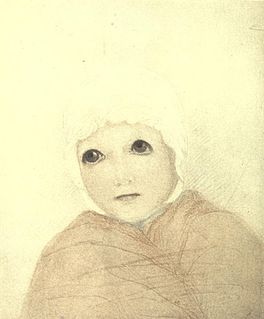 W
WMarjorie Fleming was a Scottish child writer and poet. She gained appreciation from Robert Louis Stevenson, Leslie Stephen, and possibly Walter Scott.
 W
WAminatta Forna, OBE is a Scottish and Sierra Leonean writer. She is the author of a memoir, The Devil That Danced on the Water, and four novels: Ancestor Stones (2006), The Memory of Love (2010), The Hired Man (2013) and Happiness (2018). Her novel The Memory of Love was awarded the Commonwealth Writers' Prize for "Best Book" in 2011, and was also shortlisted for the Orange Prize for Fiction. Forna is Professor of Creative Writing at Bath Spa University and was, until recently, Sterling Brown Distinguished Visiting Professor at Williams College in Massachusetts. She is currently Lannan Visiting Chair of Poetics at Georgetown University in Washington, DC.
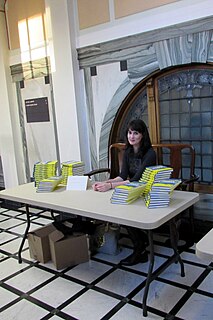 W
WJanice Galloway is a Scottish writer of novels, short stories, prose-poetry, non-fiction and libretti.
 W
WJane Gaugain was a Scottish knitter and writer. She built up a successful business in Edinburgh, Scotland and published 16 volumes on knitting that helped make it a popular pastime for ladies and a source of income for lower classes of women. Her unusually written pattern books are important in the history of textiles in Scotland.
 W
WCatherine Irvine Gavin was a Scottish academic historian, war correspondent, and historical novelist.
 W
WAnne Lorne Gillies is a singer, writer and Gaelic activist. She is a classically trained musician and a professional singer/songwriter. She was born in Stirling in 1944, and raised on a croft in Argyll from the age of five.
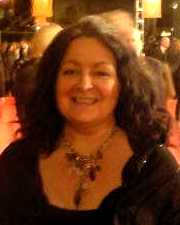 W
WJaney Godley is a Scottish stand-up comedian, actress and writer from Glasgow.
 W
WAlex Gray is a Scottish crime writer. She has published 17 novels, all set around Glasgow and featuring the character of Detective Chief Inspector Lorimer and his psychological profiler Solomon Brightman, the earlier novels being published by Canongate and later books by Little Brown. She has also written several magazine articles.
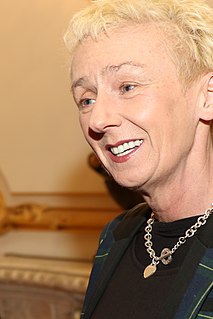 W
WMuriel Janet Gray FRSE is a Scottish author, broadcaster and journalist. She came to public notice as an interviewer on Channel 4’s alternative pop-show The Tube and then appeared as a regular presenter on BBC radio. Gray has written for Time Out, the Sunday Herald and The Guardian, among other publications, as well as publishing successful horror novels. She was the first woman to have been Rector of the University of Edinburgh and is the first female chair of the board of governors at Glasgow School of Art.
 W
WChristian Edington Guthrie Wright was a Scottish campaigner for women's higher education, co-founder of the Edinburgh School of Cookery.
 W
WElizabeth Sanderson Haldane was a Scottish author, biographer, philosopher, suffragist, nursing administrator, and social welfare worker. She was the sister of Richard Burdon Haldane, 1st Viscount Haldane and John Scott Haldane, and became the first female Justice of the Peace in Scotland in 1920. She was made a Companion of Honour in 1918.
 W
WJanet Hamilton was a nineteenth-century Scottish poet.
 W
WMary Christian Dundas Hamilton was a Scottish writer and poet. She is known for writing A Hymn for Aviators (1915). The music to this hymn was composed by Charles Hubert Parry. Hamilton's verse was printed in The Times of London in 1915 and was also included in the anthology A Book of Verse of the Great War by W. Reginald Wheeler, published by Yale University in 1917.
 W
WMairi Hedderwick is a Scottish illustrator and author, best known for the Katie Morag series of children's picture books set on the Isle of Struay, a fictional counterpart of the real-life inner Hebridean island of Coll where Hedderwick has lived at various times for much of her life.
 W
WIsobel Wylie Hutchison was a Scottish Arctic traveller and botanist. She also wrote poetry, books on her travels and articles in various geographic magazines. She painted many scenes from her adventures.
 W
WEsther Inglis (1571–1624) was a skilled member of the artisan class, as well as a miniaturist, who possessed several skills in areas such as calligraphy, writing, and embroidering. She was born in 1571 in either London or in Dieppe and was later relocated to Scotland, where she was later raised and married. Sharing similarities with Jane Segar, Inglis always signed her work and frequently included self-portraits of herself in the act of writing. However, unlike Jane Segar, Inglis successfully established a career based on manuscript books created for royal patrons. Over the course of her life, Inglis composed around sixty miniature books that display her calligraphic skill with paintings, portraits, and embroidered covers. She mostly dedicated her books to the monarchs, Elizabeth I and James VI and I, and people in power during their reign. She died around 1624, at the age of 53.
 W
WAlison Louise Kennedy is a Scottish writer, academic and stand-up comedian. She writes novels, short stories and non-fiction and is known for her dark tone, blending of realism and fantasy, and for her serious approach to her work. She contributes columns and reviews to European newspapers.
 W
WElizabeth Hilda Lockhart Lorimer was a British classical scholar who spent her career at Oxford University. Her best known work was in the field of Homeric archaeology and ancient Greece, but she also visited and published on Turkey, Albania and the area that later became Yugoslavia. She took the position of vice-principal of Somerville College during the Second World War.
 W
WCatherine Theodora, Lady Macartney (1877-1949). Catherine was born in Bexley, Kent, England. She was the second daughter of James Borland born 1836 in Castle Douglas, Scotland. In 1898, she married Sir George Macartney, the British Consul in Kashgar. Catherine's father had studied in Scotland with George Macartney's father, Halliday Macartney.
 W
WLady Anna Mackenzie (1621–1707) was a Scottish courtier and memoirist, wife of the first Earl of Balcarres and the mother of the second and third. After her first husband died, she married Archibald Campbell, 9th Earl of Argyll. She was a governess to William III when he was a child. Mackenzie suffered because she was a Jacobite and her second husband was executed for leading a rising against James VII and II which was intended to support the Monmouth Rebellion. She worked to keep together the estates of Balcarres despite the tumultuous times in which she lived and her family's support of the Jacobite cause. Her memoirs were published more than a century after her death.
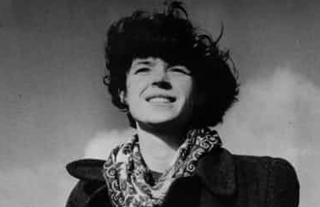 W
WMamie Ian Magnusson was a pioneering Scottish newspaper journalist and author.
 W
WMary Maitland was a Scottish writer believed to be the transcriber of the Quarto Volume of the Maitland Manuscripts, an important source for the Scots literature of the Fifteenth and Sixteenth Centuries. She recorded and preserved her father's extensive writings as his sight became increasingly poor, eventually resulting in his blindness.
 W
WAnna Maria Mann is a Scottish journalist and novelist. She was married to Rupert Murdoch from 1967 to 1999; the couple had three children.
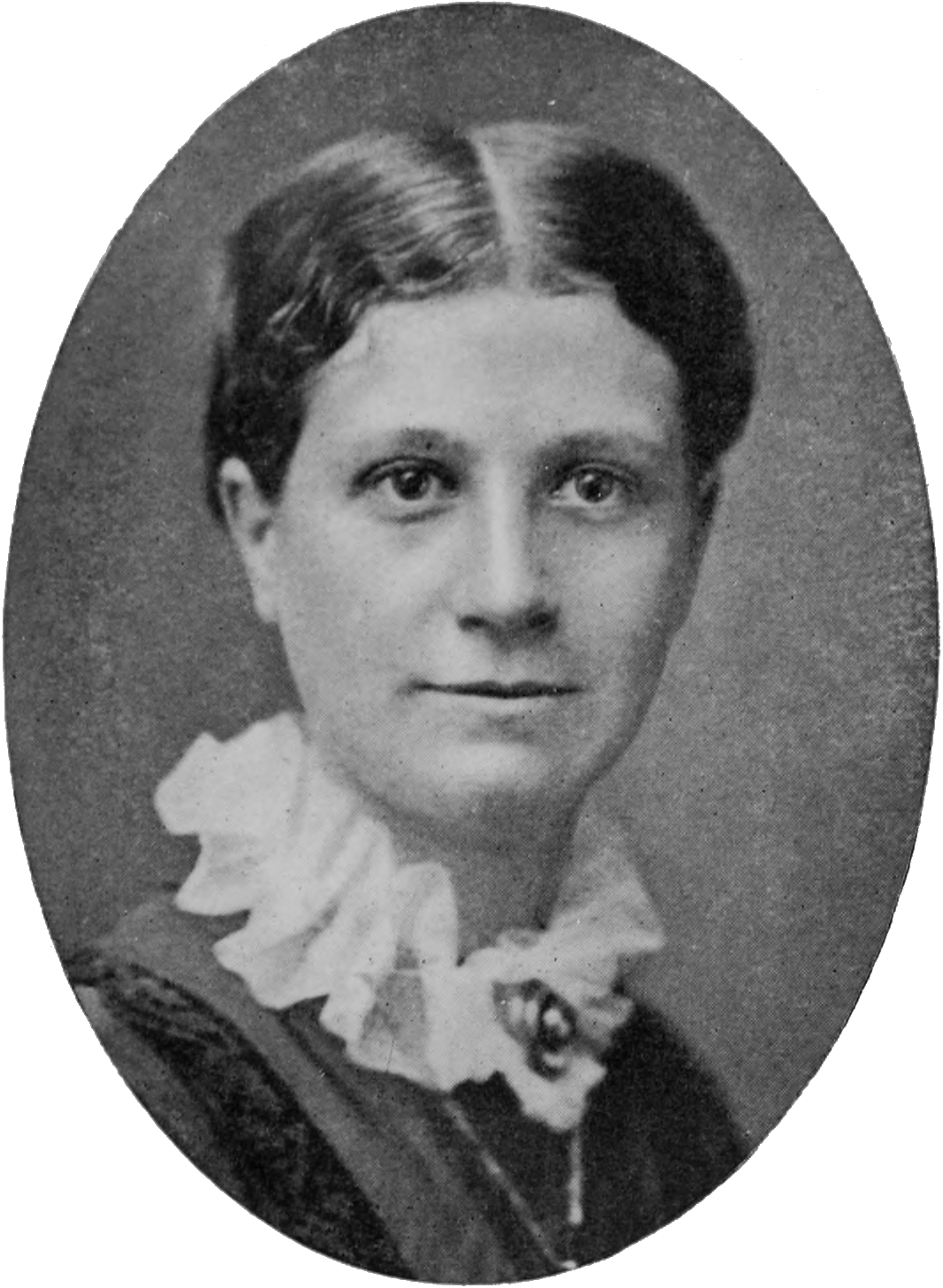 W
WIsabella Fyvie Mayo was a Scottish poet, novelist, suffragist, and reformer. With the help of friends, she published poems and stories, using the pseudonym, Edward Garrett. She spent most of her life living in Aberdeen, where she was the first woman elected to a public board. Mayo was described as an "ethical anarchist, pacifist, anti-imperialist and anti-racist campaigner"; and her "home was an asylum for Asian Indians."
 W
WAmber McNaught is a British blogger, author and former local journalist. She is best known for her fashion blogs and for reviewing Susan Boyle years before she gained fame on Britain's Got Talent.
 W
WLydia Mackenzie Falconer Miller or Harriet Myrtle was a Scottish children's writer.
 W
WEunice Guthrie Murray was a Scottish suffrage campaigner and author. She was the only Scottish woman in the first election open to women in 1918.
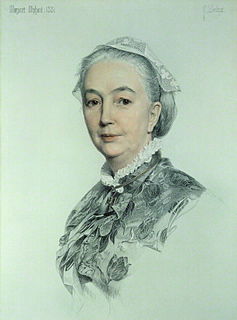 W
WMargaret Oliphant Wilson Oliphant was a Scottish novelist and historical writer, who usually wrote as Mrs. Oliphant. Her fictional works encompass "domestic realism, the historical novel and tales of the supernatural".
 W
WIsabel Pagan, also known as "Tibbie", was a Scottish poet of the Romantic Era.
 W
WCatherine Eliza Richardson was a Scottish author and poet who published a four-volume novel and three collections of verse.
 W
WAnna "Nan" Shepherd was a Scottish Modernist writer and poet, best known for her seminal mountain memoir, The Living Mountain, based on experiences of hill walking in the Cairngorms. This is noted as an influence by nature writers who include Robert Macfarlane and Richard Mabey. She also wrote poetry and three novels set in small fictional Northern Scottish communities in North Scotland. This landscape and weather played a major role in her novels and provided a focus for her poetry. Shepherd served as a lecturer in English at the Aberdeen College of Education for most of her working life.
 W
WEve Blantyre Simpson, sometimes credited as Evelyn Blanytre Simpson, Eva Blantyre Simpson, or E. Blantyre Simpson, was a Scottish writer, author of biographies, short stories, a book about dogs, and a book on the folklore of lowland Scotland.
 W
WBessie Skea or Bessie Grieve (1923–1996) was a Scottish writer of prose and poetry. Inspired by her native Orkney Islands in the north of Scotland, her reputation grew from her regular contributions to The Orcadian newspaper under the name Countrywoman, and she went on to publish a number of books. She wrote mainly about the natural world and island life.
 W
WAgnes Smith Lewis (1843–1926) and Margaret Dunlop Gibson (1843–1920), nées Agnes and Margaret Smith, were Arabic, Christian Palestinian Aramaic, and Syriac language scholars. Born the twin daughters of John Smith of Irvine, Ayrshire, Scotland, they learned more than 12 languages between them, and became acclaimed scholars in their academic fields, and benefactors to the Presbyterian Church of England, especially to Westminster College, Cambridge.
 W
WAli Smith CBE FRSL is a Scottish author, playwright, academic and journalist. Sebastian Barry described her in 2016 as "Scotland's Nobel laureate-in-waiting".
 W
WGerda Stevenson is a Scottish actress, director and writer, described by The Scotsman in 1999 as "Scotland's finest actress". She has played many parts in the theatre, including the title role in Edwin Morgan's English translation of Racine's Phèdre, and Lady Macbeth, and has appeared in many television dramas. She was Murron MacClannough's mother in the Mel Gibson film Braveheart, and her voice is familiar to listeners of British radio, as a reader of short stories and adaptations. In particular, she has performed several poems and songs by Robert Burns for the BBC.
 W
WConstance Stewart-Richardson was a British dancer and author.
 W
WAnnie Shepherd Swan, CBE was a Scottish journalist and fiction writer, who wrote mainly under her maiden name, but also as David Lyall and later Mrs Burnett Smith. As a writer of romantic fiction for women, she published over 200 novels, serials, stories and other fiction between 1878 and her death in 1943. She has been called "one of the most commercially successful popular novelists of the later nineteenth and early twentieth centuries". Swan was politically active during the First World War, as a suffragist, a Liberal activist, and a founder-member and vice-president of the Scottish National Party.
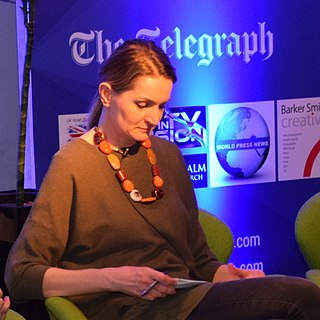 W
WSophie Walker is a British political activist who was the founding leader of the Women's Equality Party (WE) in the United Kingdom.
 W
WWendy Wood, born Gwendoline Emily Meacham, was a campaigner for Scottish independence. An eccentric and colourful figure, she was also a gifted artist, sculptor and writer, and her antics often created controversy.